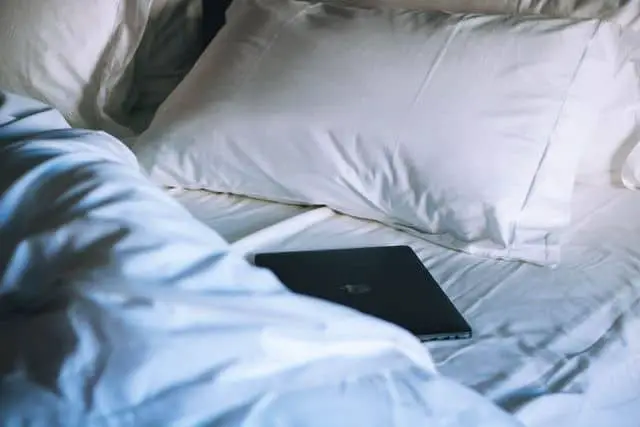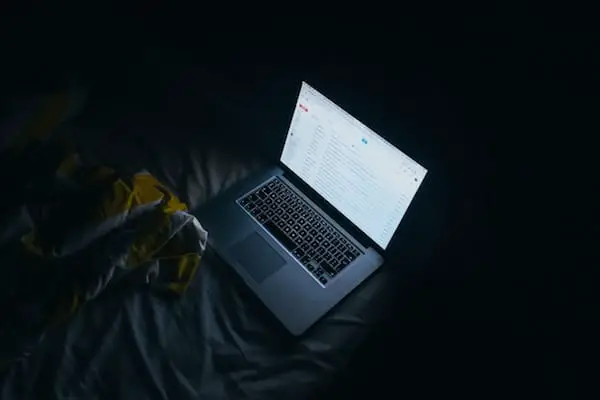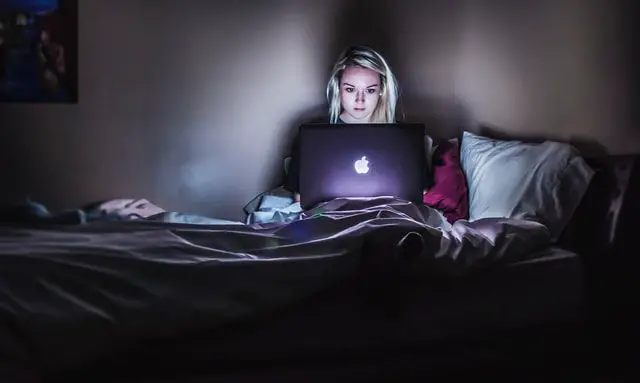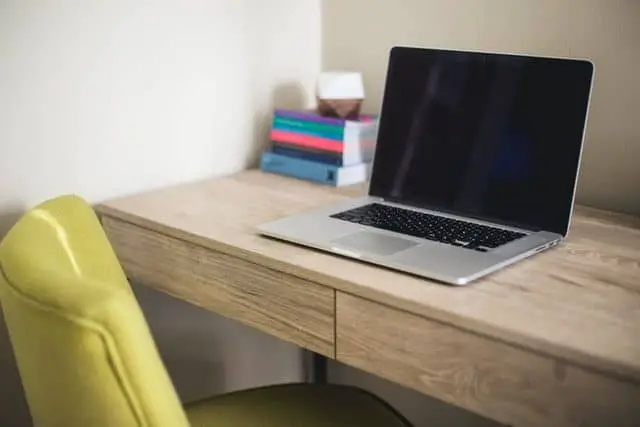In today’s technologically advanced world, we are all so dependent on our devices. We use them for entertainment, business, and everything in between. As a result, we have access to them from the time we wake up all the way to when we go to sleep at night, and repeat the process the next day.
Is it harmful to sleep next to a laptop? It is not necessarily harmful to sleep next to a laptop. Many people believe that you will be subjected to radiation and other emissions when you do this, but there is no scientific proof to back this up.
When you sleep next to a laptop, you can encounter other negative effects that can be harmful to your sleeping patterns and overall health, though. This includes being tempted to use your laptop in the middle of the night, keeping you awake and therefore depriving you of the sleep that you need.
Laptops can be used for a variety of purposes. Since they are so portable, many people will use them where they feel comfortable, such as the couch or even in their bed. This can quickly result in sleeping next to the laptop at night.
Although laptops can be useful in a lot of situations, you have probably heard of the speculation around the waves and similar effects that these devices can have on humans that come in contact with them. So, is it harmful to sleep next to a laptop? Keep reading to find out all of the details.
Is It Harmful To Sleep Next To a Laptop?

If you have a laptop of your own, or you have ever used one, you have probably heard of the popular belief that you shouldn’t use it actually on your lap.
This practice has been rumored to cause damage to internal organs and even reproductive issues in both men and women. Instead, many people will place these devices on another surface while using them to prevent these negative effects.
If it is true that you can be harmed by coming in direct contact with your laptop while just using it, then it can’t be safe to sleep next to one, right?
This article is owned by Sleeping Report and was first published on June 3, 2019
In this section, we will be breaking down this question left and right. But first, take a look at the list down below to get some of the main points of this conversation before we begin.
Safety Of Sleeping Next To a Laptop:
- Not necessarily harmful
- Radiation/electromagnetic fields are not present or strong enough to cause any serious damage
- Turned off next to you will not be harmful (can be placed anywhere as well)

Sleeping next to your laptop is not necessarily harmful, in the way of scientific evidence.
In other words, there is nothing concrete that has backed up the fact that sleeping with your laptop laying next to you in the bed will cause any kind of illness or disease, even though there is a lot of speculation around the topic.
It is believed that laptops, like other electronic devices, give off radiation to the people around it, as well as electromagnetic fields that exit from the body of the device while it is in use.
In reality, these waves and fields that come from the laptop, if any, are not strong enough to cause any serious damage to the person who is using it.
After all, this technology has been inspected and approved to be used by people on a regular basis. So overall, we can conclude that this alone will not cause any damage to you while you are sleeping next to your laptop.
This is especially true when it is turned off. The electromagnetic fields might be in the conversation when the laptop is open and being used, but when it is closed and turned off, there is nothing happening inside of it.
Therefore, if you have a closed laptop that is shut down or in sleep mode next to you, there is really nothing to worry about as far as serious harm goes.
Negatives of Sleeping Next to Your Laptop

Although we have just discussed that sleeping next to your laptop is not technically harmful, it is important to note that there are some negatives that come with this practice.
These negatives include potential risks to your health and things that can get in the way of a good night of sleep. The list down below will give you some insight on what can happen when you regularly take your laptop to bed with you.
Here are some of the things that can go wrong when you sleep next to a laptop:
- Inability to relax (stress about checking messages, business, etc.)
- Keeping you awake (due to screen light)
- Can cause issues with sleep (unhealthy schedule, insomnia, etc.)
- Potential for radiation exposure (although not proven to be strong enough)
First of all, when you sleep with your laptop next to you in your bed, you will be more tempted to open it up and use it. Think about having your laptop right next to you while you are laying down and trying to sleep.
You are inevitably going to think about what is on it at the moment, prompting you to check. You could be missing out on work emails, text messages, social media posts, and all of the above.
In addition to just wanting to check your business and personal items on your laptop, you might be tempted to grab it and do a few Google searches in the middle of the night.
When you are trying to sleep but having trouble, your mind is probably going a hundred miles an hour thinking of everything else in the world but going to sleep.
As a result, you might think of a random question and want to look up the answers on the internet. With your laptop at an easy point of access right next to you, this will be much more convenient and you will probably do it more times than not.
When you open up your laptop in the dark in the middle of the night, the lights that come off of the screen can actually make you feel less tired.
Most laptop screens will have a blue tint in the lighting that comes off of the screen, which activates something in the brain that makes us more alert. While it is true that most laptops nowadays have a yellow lighting setting, or a “night mode”, this can still keep you awake for longer than you need to be.
If you do this frequently or every night, you will eventually start to develop an unhealthy sleeping schedule. Sleeping next to your laptop and having access to it at all hours of the night is not something that will help you relax and get the rest that your body needs.
This article is owned by Sleeping Report and was first published on June 3, 2019
This can, therefore, cause a lot of health problems and interfere with your sleeping patterns in the future.
Finally, you are putting yourself at a potential risk for radiation and other emissions when you sleep next to your laptop.
Although it was previously mentioned that these effects are either not present or just not strong enough to do any real damage, there is really no scientific proof to back this up either way.
So, when you are willingly sleeping next to your laptop, you are more at risk for this potential harm than you would be otherwise.
The Safest Way To Use a Laptop

So, now that you have the understanding that it is not necessarily unsafe to sleep next to your laptop, while also being informed about the potential risks, you might be wondering how you can be as safe as possible in doing this.
Although the risks do not outweigh the positives, and they are not very likely to happen to you, there is no solid evidence to prove either theory. So, as a result, it is always beneficial to stay on the safe side with a few laptop safety tips.
Here are some tips that you can follow in order to be as safe as possible while using a laptop:
- Use your laptop on some kind of flat surface (ie table)
- Place a pillow or some kind of barrier in between you and the laptop (when using it on a bed/couch)
- Always keep your laptop turned off while not in use during sleep
- Don’t sleep with your laptop in the bed/next to you when you don’t have to
In order to be as safe as possible and avoid the potential risks that might come with using laptops, you can make sure that you are never coming in direct contact with your device.
This includes when you are using it and when you are sleeping. In addition, you should keep your laptop turned off while you are sleeping and try not to sleep so close to it when you don’t have to.
Even though laptops have not been proven to cause harm during sleep, you can always stay safe and avoid any potential issues.
SleepingReport.com copyright article was updated on ..
How about sleeping near a router is it bad?

